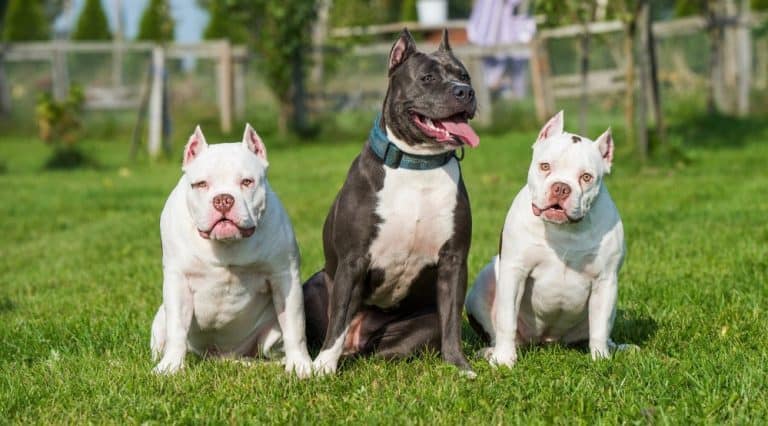Goldendoodle Lifespan – How Long Do Goldendoodles Live
The time you spend with your Goldendoodle is precious, and even though no one likes talking about when you will have to part with your furry friend, it is useful to know how long they live.
Knowing the Goldendoodle lifespan will prepare you for the inevitable season when the time comes for you and your dog to be separated.
So, how long do Goldendoodle live? On average, a Goldendoodle can live between 10 to 15 years.
Some factors can affect their lifespan, but they can also be extended by providing a loving home, veterinary care, and attention to dietary requirements.
To ensure that your Goldendoodle lives a healthy and long life, research on the potential health risks that can affect them and provide preventative care.
Read more on this article to know how you can extend the life of your Goldendoodle.
Goldendoodle Life Expectancy
The Goldendoodle lifespan is between 10 and 15 years. These numbers vary depending on the size and genetics of the Goldendoodle. This number is derived from the experiences of breeders and owners from all over the world.
The range in age is from the two different parent breeds: the purebred poodle and the English or American Golden Retriever.
Poodles have a life expectancy of 10 to 18 years and come in a variety of sizes while Golden Retrievers have a lifespan of about 10 to 12 years.
A general rule is that smaller dogs live longer especially Goldendoodles that have a higher percentage of Poodle genetics in them. Goldendoodles being a Hybrid cross take the higher range and lower range of the life expectancy of the two parent breeds.
How Can I Extend the Life of My Goldendoodle?

The following are the ways you can help your Goldendoodle live longer and happy:
Feed Him Healthy Diet
Goldendoodles need to be fed a proper and balanced diet that is healthy and designed to strengthen all the parts of your dog’s body as they grow.
Ensure that the dry kibble you are feeding your Goldendoodle is a brand recommended by your vet and is rich in healthy protein and fats. These foods not only nourish your dog but improve their dental hygiene.
It is important that your start your dog on healthy food as young as 8 weeks old so that their immune system can develop properly to protect them against diseases.
A well-balanced diet should provide all the necessary vitamins and minerals your Goldendoodle needs for long and healthy life. This means that you will not need to supplement your dog’s diet unless it is directed by the vet.
Developing a feeding schedule for your Goldendoodle will allow them to eat the right amount of food they need thus avoiding being overweight and obese from overeating.
Since Goldendoodles are a mixed breed, finding the right diet for them will help them live longer. They do best when fed high-energy foods because they are active.
You should note that some Goldendoodles are allergic to wheat, corn, dairy, and soy, therefore, be careful when introducing new food to your dog.
Exercise & Training
Goldendoodles are a mix of two very energetic and athletic breeds: Poodles and Golden Retrievers. So, the need for regular exercise to keep their body and mind stimulated and healthy.
Ensure that you have enough room in your home for your Goldendoodle to explore and play so that they can maintain their physical fitness and minimize the risk of health issues related to weight in their senior years.
Help your Goldendoodle enjoy being active through hiking, walking, fetch, running, playing, and swimming.
Your Goldendoodle will not only be happy but also have stronger muscles and bones as well as a stronger cardiovascular system.
However, you should avoid over-exercising your Goldendoodle because overworking their bones and joints can cause issues such as hip dysplasia when they are older. Ensure that you are giving them the exercise they need according to their age.
Training your puppy on obedience, confidence, and other agility exercises will ensure that they are socializing well with other dogs and people.
It is important that you introduce certain house training as young as two months so that they become obedient dogs when adults.
Learning commands such as sit, come, and leave can prevent your dog from engaging in unsafe behaviors making life much easier.
Visit The Vet Regularly
Regular visits to the vet are necessary for your Goldendoodle because health problems can be diagnosed and treated early before becoming severe and shorten their life.
Visits to the vet involve check-ups and vaccinations. When your Goldendoodle is young, there are vaccinations that they need so that they can be protected from certain health issues as they grow old and strengthen their immune system.
If you are not sure when or whether to spay or neuter your Goldendoodle, the vet can give you information about the procedures.

Brush Your Goldendoodle’s Teeth
Teeth brushing is one of the most neglected yet easy tasks most dog owners need to do. Brushing teeth can affect the overall health of your Goldendoodle positively.
However, if you do not brush your dog’s teeth, they may require extractions because they may suffer from gum disease which can be uncomfortable for your dog.
Brush your Goldendoodle’s teeth if you want to extend their lifespan. Even though they may not enjoy getting their teeth brushed, it is possible.
Gradually, introduce brushing to your Goldendoodle and ensure that you use a small toothbrush and only brush for 60 seconds.
Goldendoodle vs Mini Goldendoodle Lifespan
Goldendoodles come in different sizes including standard and mini. The lifespan of both the standard and mini Goldendoodles can be influenced by the parents. For F1 Goldendoodles, the parents are a poodle and a Golden Retriever.
Some Goldendoodles can develop certain health conditions in old age and can affect their life expectancy.
The lifespan of a standard Goldendoodle is between 10 to 15 years while the lifespan of a mini Goldendoodle is between 12 to 15 years.
Overweight Goldendoodles Live Shorter Lives
Goldendoodles that are overweight are predisposed to several health issues such as joint diseases, diabetes, liver disease, heart disease, respiratory disease, skin disease, and heatstroke.
Also, some forms of cancer can be associated with excess weight and even obesity. These diseases can shorten the life of your Goldendoodle.
Ensuring that your Goldendoodle body weight is ideal can add years to their life. Lean Goldendoodle tends to be more comfortable and much healthier than obese dogs.
If your Goldendoodle is overweight, exercising them and giving them proper nutrition will help them lose weight.
Regular visits to the vet should include an evaluation of your Goldendoodle’s body condition to determine whether their weight is ideal or not.
The vet will also help you to come up with a proper diet and a feeding routine suitable to meet your Goldendoodle’s daily caloric requirement.
Regular exercises will burn calories as well as provide the mental stimulation that your dog needs and keep their muscles and joints healthy and flexible.
Goldendoodle Age Groups Explained

The following are the different age groups for Goldendoodles:
Puppy
Your Goldendoodle is a puppy from when they are a newborn until they can reproduce. This stage involves weaning, teething, house training, and vaccination.
This is the stage where food is introduced to the puppy, and you can know which type of foods they like. Puppies move to their new homes at around 8 weeks old.
Juvenile & Teenager
This is the age between 6 and 12 months. Even though at this age puppies can reproduce, they are still growing and are not yet an adult.
This is the age to visit the vet to receive advice on spaying or neutering if you do not want to breed your Goldendoodle.
Adult
This is the age between 1 and 7 years. This is where your Goldendoodle has finished growing and has attained their adult weight and height.
Their appearance and behavior are that of a grown dog. At this age, you should provide them with healthy and balanced food to maintain their weight as well as exercise to keep them mentally stimulated.
Senior
From the age of 7 years onwards, your Goldendoodle is a senior. It is easy to take care of a senior dog than a puppy, but they also need help with a few things to live happy and healthy.
At this age, you should minimize strenuous activity as their joints can be affected. Regular visits to the vet are also recommended to ensure that your Goldendoodle does not suffer from any health conditions in their old age.
Does Neutering & Spaying Affect Goldendoodle Life Expectancy?
Spaying and neutering is the surgical removal of the reproductive organs of dogs. Spaying or neutering your Goldendoodle at the right time will reduce the risk of mammary cancer and testicular cancer.

There is a higher likelihood of death from trauma and infection in dogs that are not spayed or neutered because they tend to fight, roam, and interact sexually.
Talk to your vet to know when to safely spay or neuter your Goldendoodle.
Goldendoodle Common Health Issues That Can Affect Their Lifespan
The following are the health conditions that can reduce the lifespan of your Goldendoodle if left untreated:
Heart disease – Goldendoodles suffer from different types of cardiovascular problems. Regular vet visits can help with early diagnosis and treatment to prolong the life of your puppy.
Thyroid problems – thyroid issues can create problems such as nerve damage and heart complications in your dog. While these conditions can be managed through medication, early diagnosis can be difficult because the symptoms can be mild for most owners to notice.
Cancer – Goldendoodles are prone to osteosarcoma and lymphoma because of their larger bones and bodies.
Bloat – bloat is a very serious condition in dogs where the stomach swells up because of air causing digestive issues. Since the dog cannot eat well, they can suffer from malnutrition, and this can lead to death for most Goldendoodles.
Progressive Retinal Atrophy – this condition affects most Goldendoodles as they reach seniority. This is where the cells of the eyes degrade causing your dog to lose sight, especially during daylight.
Von Willebrand’s Disease – this condition affects the ability of the dog’s blood to clot. When a dog is injured, they may bleed out because they are unable to form clots.
Hip Dysplasia – this condition occurs when the joint between the hip and the leg does not fit well leading to discomfort and pain when sitting, standing, and moving.
Ear Infections – it is easy for Goldendoodles to get ear infections because of their floppy and long ears that do not get enough exposure to fresh air. If these infections are left untreated, the overall lifespan of your dog can be affected.
Allergies – most Goldendoodles are often allergic to fillers found in dog foods such as wheat, soy, and corn.
Allergies are not easy to identify, therefore, it can take a while before you notice your puppy is suffering from an allergic reaction. And this can affect their body’s strength with time.
Goldendoodle Lifespan FAQs

Indoor vs Outdoor Goldendoodle
Goldendoodles make great indoor dogs because they are highly trainable. Goldendoodles puppies strive to impress their owners and are very smart.
Their exercise needs are also average, they are low maintenance, hypoallergenic, and versatile. This makes them great indoor dogs.
On the other hand, Goldendoodles should not be kept in the outdoors. This is because they have a strong need to be with their family and their coat is not suitable for the outdoors.
They are prone to separation anxiety and tend to be clingy for them to be kept outside.
Does A Goldendoodle Live Longer Than a Labradoodle?
The life expectancy of a Goldendoodle and a Labradoodle is very similar. The Labradoodle lives between 12 and 14 years while the Goldendoodle lives between 10 and 15 years.
However, the expected lifespan in these dogs depends on the conditions they live in and how they are taken care of in terms of food, exercise, and veterinary check-ups.
Final Words
It is important to understand the different health conditions that can affect the lifespan of your Goldendoodle. The conditions can be managed by medication when diagnosed early.
Brushing your dog’s teeth, taking them to the vet regularly, exercising and training them as well as feeding them a healthy balanced diet to ensure that they live a long and happy life.
Hopefully, this article has given you all the information that you need to know about the lifespan of a Goldendoodle and how you can help them live longer.






